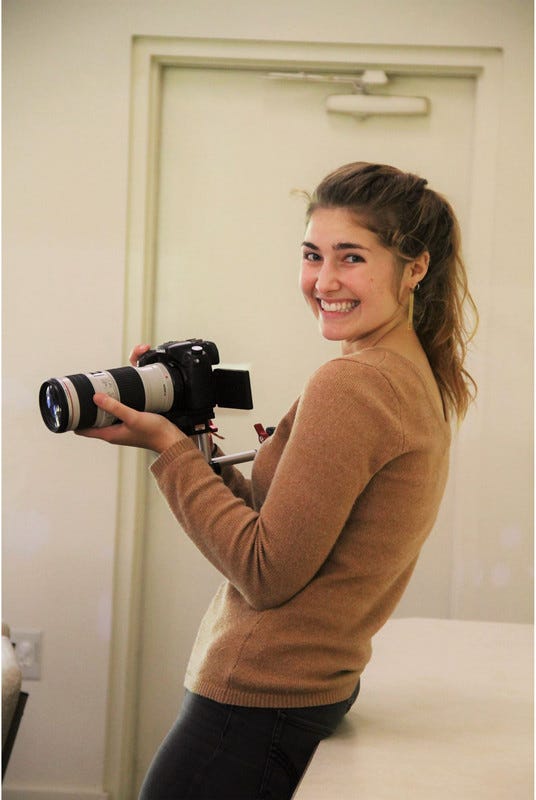Indy Film Fest -- Interview: Elizabeth Miller-Derstine
The director of "Welcome to the Dollhouse" talks about documenting a troupe of South Bend burlesque performers and how taking off their clothes uplifts their souls.
For Indy Film Fest showtimes and tickets, please click here.
Film Yap: What drew you to this story of a South Bend burlesque troupe?
Elizabeth Miller-Derstine: I met the Distress Dolls in 2019 when I was serving as a board member at Goshen Art House. The Dolls were performing in the theaters Black Box venue, and I saw Veda perform the act we ended up using as the film's final act. I was brought to tears. I was not expecting that emotional reaction from a burlesque show and thought, "Oh, there is a story with a lot of heart to be found here.”
Film Yap: Tell us about the filmmaking process and what it took to get Dollhouse to the screen.
Elizabeth Miller-Derstine: The film's cinematographers (David Miller-Derstine and Riley Mills) and I spent around three months following the troupe, who were so gracious with their time and stories.
The Dolls members are no novices in sharing their bodies with audiences, but they extended great trust to our filmmaking team in handing over the portrayal of their bodies. In burlesque, the performer controls everything — costuming, choreography, how much skin is shown, and how. By allowing us into their rehearsals, they relinquished that control. We did not receive this lightly.
The cinematographers and I spent time processing how to film the performers' bodies in a way that reflected instead of exploited their art. We made the active choice to be intentional with our closeups, refusing to cut up their bodies. The commonality of segmenting the female body removes humanity from the body. Along with attention to closeups, the relationships I built with the Dolls allowed us to film and edit condensed versions of the acts while retaining the spirit of the performer.
Film Yap: Can you give us a little background about you and your filmmaking career?
Elizabeth Miller-Derstine: Elizabeth Miller-Derstine: I graduated from Goshen College with degrees in Filmmaking and English. Since then, I have been filming as much as I can. I have worked as a multimedia producer for a nonprofit, freelanced as a wedding videographer, volunteered filmmaking for mutual aid groups, and supported local artists through social media videos. I love filming, and am constantly on the lookout for ways I can do what I love. So much of filmmaking is just getting out there and doing it.
Film Yap: Why do you think these women seem to draw such empowerment from the act of performing for a crowd?
Elizabeth Miller-Derstine: Elizabeth Miller-Derstine: One of the things I love about nonfiction filmmaking is that no matter how strong an idea you have for a story, the story is not yours. I went in with thoughts about the balance of empowerment and exploitation, but the answer is far more nuanced. As someone who is not a burlesque performer, it is not my space to hypothesize why the Dolls draw empowerment from their art. My job is to listen.
Film Yap: As one of the performers says, they put their heart, soul and even their own pocketbook into burlesque, not even making enough money to break even. Why do you think creative types — from dancers to filmmakers — are driven to do what they do?
I think Veda puts it best in the final line from the film. "It's beautiful." Creating art and telling stories is beautiful and human. Speaking for myself, filmmaking, art, is never easy and rarely profitable, but I want to be part of making the world more beautiful.
Film Yap: What’s next for you?
Elizabeth Miller-Derstine: I am working towards my MFA at Wake Forest University's Documentary Film Program. My thesis film, an exploration of birth doulas in North Carolina, is taking up much of my time. The film follows birth doulas and the mothers they advocate for and questions why a country that values personal freedom limits how parents exercise it during birth.
This film's guiding touchstone is a belief that our medical system should serve all people equally and within culturally appropriate frameworks. This country has a history of minimizing the pain and experiences of women, disproportionately BIPOC women. Whether trans, nonbinary, or female-identifying, birthing populations deserve bodily agency and safe healthcare options.




